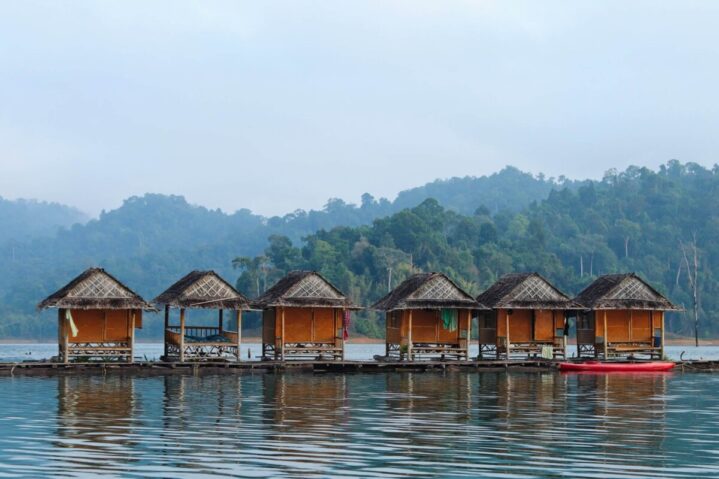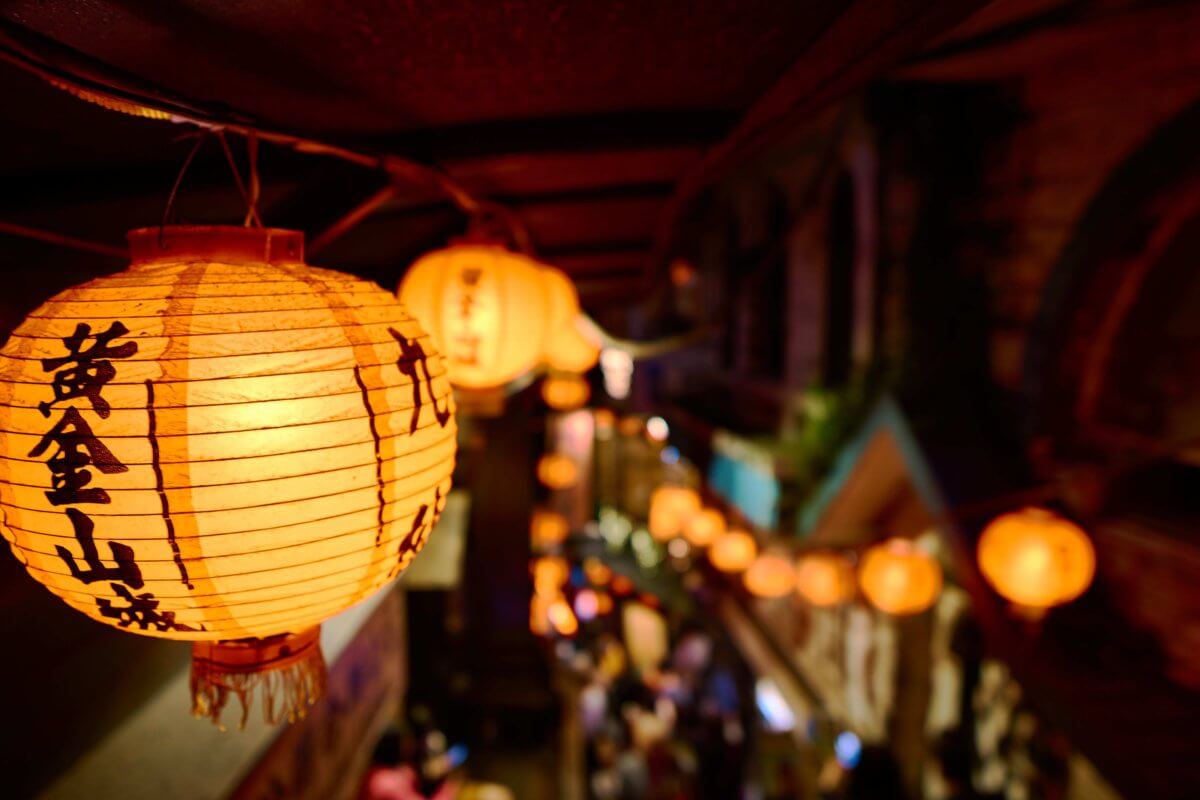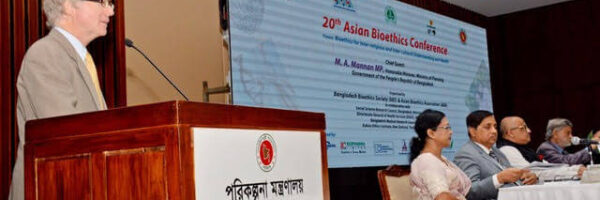
Most welcome guests – the Chinese in Thailand
The Thai-Chinese are the largest minority group in the country. They are also the largest overseas Chinese community in the world. With over 11 million people, the Chinese make up about fifteen% of Thailand’s population. They are the oldest, most prominent and best integrated overseas Chinese community in history. About half of the ethnic Chinese in Thailand can trace their ancestry from Guangdong Province in SE China. For well over two centuries, the Thai-Chinese have been deeply involved into all elements of Thai society.
The Thai-Chinese are a very well established middle class ethnic group. They are well represented at all levels of Thai society. This group have always played a leading role in Thailand’s business sector. They dominate the country’s economy and finances even today. Additionally, they have a strong representation in Thai politics. It is very interesting to note that most of Thailand’s former Prime Ministers and many parliamentary members have some Chinese ancestry. Chinese-Thai descendants are also well represented in Thailand’s military and elite.
It has been noted by historians that from at least since the 13th century, Chinese traders started to arrive in Ayutthaya from Guangdong and Fujian Provinces. The Chinese did not achieve any prominence until after the fall of Ayutthaya to foreign invaders in 1767. An independent Thai general named Taksin, who escaped from Ayutthaya before its conquest, was the son of a Chinese immigrant. He quickly gathered the remnants of the Thai army, reorganised and trained his troops and rapidly expelled the foreign invaders. When Taksin became King, he had a close relationship with his kinsmen and strongly encouraged more Chinese trade and immigration.
With massive corruption in the Qing dynasty in the early 19th century plus a massive population increase in China, reoccurring natural disasters like drought and flooding, internal rebellions plus a very high tax rate, these grave problems caused some men to leave China. Many emigrated to Thailand due to the many employment opportunities and the chances to advance themselves financially under a stable political regime. There were a lot of jobs due to an expanding economy, especially after Westerners were welcomed back in the early 1820s for trade, medicine, education and proselytizing by missionaries. Also, some Thais shunned certain menial positions, hard labour or dangerous jobs they felt beneath them socially like rickshaw drivers, blacksmiths or stevedores. The Chinese eagerly grabbed every employment opportunity available. These men were expected to send money back to their families if they were successful. During this early time, only men immigrated to Thailand. No women came, even if the men were married or had families. So, it became commonplace for single men to wed local Thai women. These families were called Sino-Thai. Such unions or mixed marriages started to rapidly decline in the early 20th century as greater numbers of Chinese women also began to emigrate to Thailand and married Chinese spouses. Immigration continued over the following years, and the Chinese population in Thailand jumped from 230,000 in 1825 to 792,000 by 1910.

A closeup of Chinese paper lantern with lights surrounded by buildings with a blurry background 
As the Thai economy shifted away from royal controlled monopolies to international trade in later 19th century, due to the treaties between Western nations and Thailand, “tax farming” quickly became a very important source of new revenues for the government. Monopolies were granted on salt, gambling, opium, teak logging and other timber trade and in other areas. The Chinese immediately dominated all these concessions by bidding more than other traders. But as the social ills associated with opium smoking and gambling became readily apparent the Thai government these concessions were ended and banned both activities.
When Thailand was struggling to defend its independence from the colonial powers in the later part of the 19th century, Chinese bandits from Yunnan Province, called Haws or Yunanese, began making raids into Northern Thailand. Due to the lack of transportation anywhere, these raids actually greatly spurred the development of national railways so troops could be quickly shifted to defend Thailand’s borders. Thai nationalist attitudes at all levels began to be colored by anti-Chinese sentiment.
Most of these new immigrants settled in Bangkok. These immigrants also brought agricultural innovations to rice farming and rubber plantations, but at the time the Thai government was questioning their motives. Also, Sun Yat-sen was fomenting the overthrow of the Qing Dynasty and visited Thailand in 1910. His visit helped to polarise the Imperial and nationalistic Chinese political elements here and also increased Thai government suspicions on the motives of the Chinese residents who were determined to integrate into the Thai society. King Rama VI (1910–1925) required the adoption of Thai surnames in 1913. This act was primarily directed at the Chinese community, so all the Chinese assumed Thai names. The government also started regulating Chinese schools even before compulsory education was established in the country, starting with the Private Schools Act of 1918. All Chinese newspaper except one was shut down and learning Chinese was discouraged, thus increasing assimilation.
In 1932, the Primary Education Act mandated the Thai language would be compulsory in all schools. But Thai-Chinese strongly protested this edict. In 1933, a new regulation required all foreign teachers to pass a Thai language test and for principals of all schools to implement new education standards that were established by the Thai Ministry of Education. By 1939, Thai-Chinese students were finally permitted two hours per week of Mandarin Chinese instruction. The Chinese in Thailand did experience some discrimination between the 1930s to 1950s under the military dictatorship of Prime Minister Plaek Phibunsongkhram. It is ironic to note that Field Marshal Phibunsongkhram had part-Chinese ancestry. With the forced alliance of Thailand with Japan in 1941 the Chinese faced more restrictions with new taxes and controls with the government taking over some commodities previously controlled by Chinese businesses.
By the late 1950s, the Thai-Chinese completely dominated all aspects of Bangkok’s and Thailand’s economy. It was estimated that 90% of Thailand’s commercial and industrial capital was held by the Thai-Chinese. The same percentage was also estimated on the number of shares held in Thai corporations. It was also estimated that this group controlled 50% of all finance and banking investments. Traditionally, there has always been something of a lack of an indigenous commercial culture in the country. It has also been estimated that 25 of the leading entrepreneurs in the country, 23 are fully or partially Thai-Chinese. Of the country’s most 70 powerful business groups, the Thai-Chinese families controls virtually all of them. It is a given that the businesses are passed down from one generation to the next. The Thai-Chinese overwhelmingly dominate the manufacturing sector and half the service sector.
By 1970, the overwhelming majority of Thai-Chinese had been granted Thai citizenship as they abandoned their Chinese citizenship. In 1975 diplomatic relations were finally established between Thailand and China. With the rapid rise of China as a global economic power over the past several decades, many Thai-Chinese business families have sought to learn the Chinese Mandarin dialect in order to help or cement their busines relations between the two countries. Thai-Chinese families are encouraging their children to also learn Mandarin, but also Thai families are equally interested in encouraging their children to do exactly the same thing in order to boost their career and business opportunities in the future.
In 1994, one financial analyst based in Singapore estimated that of the 500 largest public corporations controlled by overseas Chinese in Asia, there were 39 companies based in Thailand. They had a combined market capitalisation of USD$35 billion and total assets of USD$94 billion. Thai-Chinese also control the country’s largest banks including Bangkok Bank, Thai Farmers Bank and Bank of Ayudhya. Thai-Chinese families are an important part of what is called the “Bamboo” Network. This term describes the extensive network of overseas Chinese businesses that are located in SE Asian markets that share common cultural ties, language, ethnic and family connections.
By the early part of the 21st century, the Thai-Chinese had maintained their dominant role in all aspects of the Thai economy and their strong representation at every level of Thai society that continues up to today. There never has been any question that they have maintained this important role in Thailand’s important spheres of influence over the many decades. It has been said by some that the Thai-Chinese economic power is far greater than their proportion of the Thai population taken at face value. The Thai-Chinese have a very powerful economic presence and a significant representation among the wealthiest citizen of the kingdom.
This distinctly prominent Sino-Thai business community has emerged as the most important economic group. It controls virtually all major business sectors here. The Thai economy is highly dependent on Thai-Chinese business investors. Their support is enhanced by political parties and lawmakers many of whom are of Thai-Chinese heritage. Their influence in both Thailand, SE Asia and Asia cannot be overstated. They are is an economically powerful and important social class.




